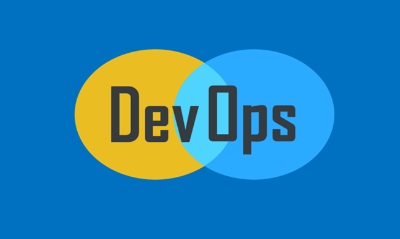Our experts providing DevOps interview questions & Answers/Faqs can develop your carrier & knowledge to find the right job in a good MNC’s DevOps Interview Questions Freshers 3 years experience Freshers Medium Level Top 100 Devops Interview Questions and Answers.
1. List the essential DevOps tools.
Git
Jenkins
Selenium
Puppet
Chef
Ansible
Nagios
Docker
Monit
ELK –Elasticsearch, Logstash, Kibana
Collectd/Collect
Git(GitHub)
2. What are the core roles of DevOps Engineers in terms of development and Infrastructure?
The core job roles of DevOps Engineer
Application development
Code developing
Code coverage
Unit testing
Packaging
Deployment With infrastructure
Continuous Integration
Continuous Testing
Continuous Deployment
Provisioning
Configuration
Orchestration
Deployment
3. What are the advantages of DevOps with respect to Technical and Business perspective?
Technical benefits:
Software delivery is continuous.
Reduces Complexity in problems.
Faster approach to resolve problems
Manpower is reduced.
Business benefits:
High rate of delivering its features
Stable operating environments
More time gained to Add values.
Enabling faster feature time to market
Learn more about DevOps advantages from this informative blog.
4. The scope for SSH?
SSH is a Secure Shell which provides users with a secure, encrypted mechanism to log into systems and transfer files.
To log out a remote machine and work on command line.
To secure encrypted communications between two hosts over an insecure network.
5. Which are the areas where DevOps are implemented?
Production Development
Creation of the production feedback and its development
IT Operations development
6. List the agile methodology of DevOps.
DevOps is a process
Agile is same as DevOps.
Separate group for are framed.
It is problem solving.
Developers managing production
DevOps is development-driven release management
7. List the major difference between the Agile and DevOps.
Agile:
Agile is about software development
Devops:
DevOps is about software deployment and management.
DevOps does not replace Agile or Lean. It does this by killing waste, removing handovers, and streamlining deployments to allow faster and more continuous deployments to PRODUCTION.
8. Name the popular scripting language of DevOps.
Python
9. How DevOps is helpful to developers?
To fix the bug and implement new features quickly.
It provides the clarity of communication among team members.
10. What are Vagrant and its uses.
Vagrant used virtual box as the hypervisor for virtual environments and in current scenario it is also supporting the KVM. Kernel-based Virtual Machine
Vagrant is a tool that can create and manage environments for testing and developing software.
11. What are the major difference between the Linux and Unix operating systems?
Unix:
It belongs to the family of multitasking, multiuser operating systems.
These are mostly used in internet servers and workstations.
It is originally derived from AT&T Unix, developed starting in the 1970s at the Bell Labs research center by Ken Thompson, Dennis Ritchie, and others.
Both the operating systems are open source but UNIX is relatively similar one as compared to LINUX.
Linux:
Linux has probably been home to every programming language known to humankind.
These are used for personal computers.
The LINUX is based on the kernel of UNIX operating system.
12. How we can make sure new service is ready for the products launched?
Backup System
Recovery plans
Load Balancing
Monitoring
Centralized logging
13. What are the benefits of the NoSQL?
Non-relational and schema-less data model
Low latency and high performance
Highly scalable
14. What are adoptions of DevOps in industry?
Use of agile and other development processes and methods .
Demand for an increased rate of production releases from application and business.
Wide availability of virtual and cloud infrastructure from both internal and external providers;
Increased usage of data center ,automation and configuration management tools;
Increased focus on test automation and continuous integration methods;
Best practices on critical issues.
15. What are the advantages of NoSQL database over RDBMS?
The advantages are:
There is very less scope of ETL
Support is given for unstructured text
Changes are handle over period of time
Main objectives are functionality.
It has the ability to scale horizontally
Multiple data structures are given support.
Vendors can be chosen.
16. The top 10 skills the person should be having for the DevOp’s position?
Excellent in System Admin
Virtualization Experience
Good Technical Skills
Excellent Scripting
Good Developing skills
Chef in Automation Tool Experience
People Management
Customer Service
Real time Cloud operations
Who care about someone
17. Explain how the implementation of “Infrastructure as code” is processed or executed in terms of AWS.
In AWS,
The code will be in the simple JSON format.
This JSON code is well organized into files called templates.
This templates are deployed on AWS and then further managed as stacks
Cloud Formation service will help in doing the Creating, deleting, updating, etc. operation in the stack.
18. What measures we have taken to handle revision (version) control?
To handle revision control, post your code on SourceForge or GitHub so everyone can view it and ask the viewers to give suggestions for the better improvement of it.
19. What are the types of HTTP requests?
The types of Http requests are
GET
HEAD
PUT
POST
PATCH
DELETE
TRACE
CONNECT
OPTIONS……………… For more Click Here
For Course Content Click Here
